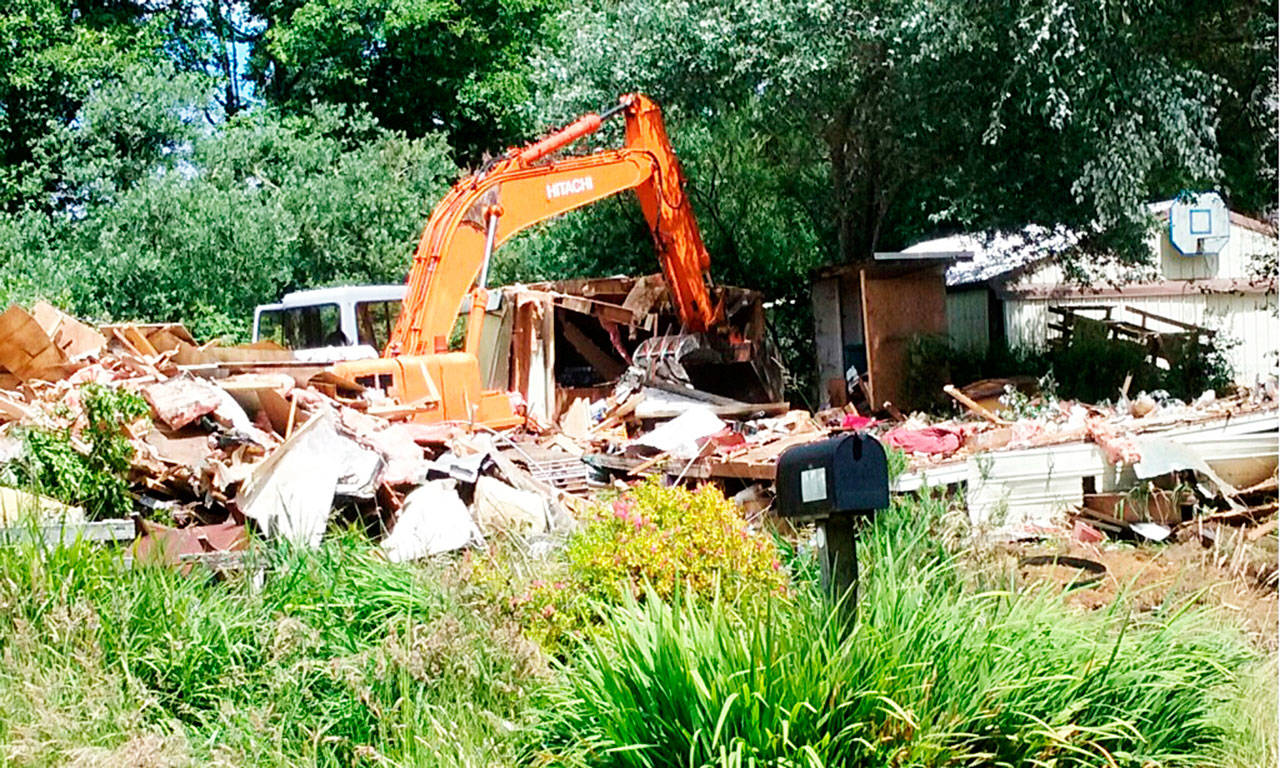The city’s tougher public nuisance law is having the intended impact on several of Ocean Shores’ most apparent neighborhood eyesores, Police Chief Neccie Logan told the City Council on Monday.
“We just wanted to thank the council for approving that updated nuisance ordinance because it has definitely been a big help … to get the properties into compliance,” Logan said.
Since the new ordinance was approved by the council in April, Code Enforcement Officer Shaun Beebe has worked with residents to bring three problem properties into compliance with city code.
“These properties he’s had trouble getting into compliance prior to the updates, and he has been actually working with two of the residences since January 2015,” she said.
The city also on Monday began clearing the dilapidated mobile home and surrounding property at 220 Rain St. NE, a property abated by the city after numerous complaints and problems.
Two other properties are under scrutiny, Logan said, but the owners have recently changed “and are working on getting those into compliance now.”
“He still has a few problems that he’s working on where he is having difficulty locating the responsible owners,” she said of Beebe’s efforts there, which date back to 2016 on those two addresses. “The reasons he’s having difficulty locating the owners is because the residences are vacant, and they have been sold a couple of times since then, or sold at auctions.”
Some of the owners also were deceased.
With a few exceptions, addresses were not discussed during the meeting, although one property near the Police Station on Point Brown Avenue was noted as one of those working to come into compliance.
Under the new ordinance, a chronic nuisance property may be fined up to $500 per day until the Police Chief confirms the property is no longer a nuisance. If the city is forced to abate, the costs are to be paid for by the person in control of the property. If the court then finds that an owner failed to “take all reasonable steps requested in writing,” the court may impose a civil penalty up to $25,000.
Chronic nuisances “exist as a result of a property owner omitting to perform a duty or permitting an action or condition to occur or exist (that) intrudes or or interferes with the ability of neighbors or residents to use or enjoy their properties. If there are 3 or more nuisance activities on the property during a 60-day period or 7 or more nuisance issues over a 12-month period, a property would be considered a chronic nuisance. Also included are properties in which there have been two or more drug investigations or violations within a 12-month period.
Council member Holly Plackett asked Logan if she thought the tougher measures were having an impact on the code enforcement officer’s ability to do his job when dealing with problem properties and property owners..
“For lack of a better word, it gives him more teeth to back up what he’s saying to them. He’s been actually able to get them to listen and work with them to get the properties clean up,” Logan said.
Beebe has been working with both rental residents and home owners, she added, to “get them all into compliance.”
While Logan said there is no actual list of problem properties, there are a number that Beebe still has case files on, with issues that are ongoing.
The house on Pt. Brown that has had numerous code issues has now been brought up to code, Logan said. Beebe still is working “to make appearances a little better, but that one has actually been brought up to code,” she said.
”



